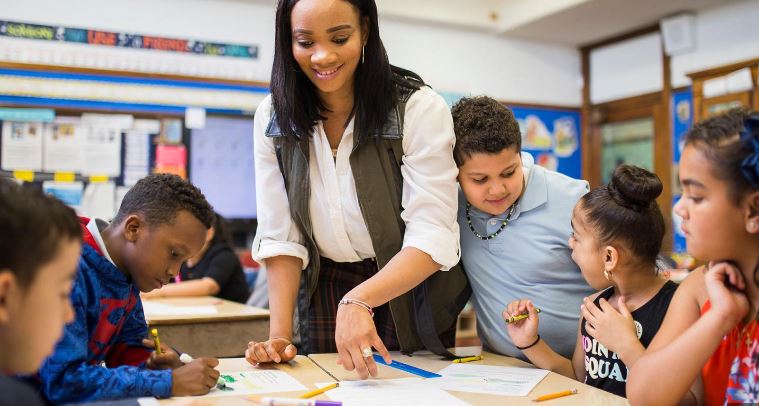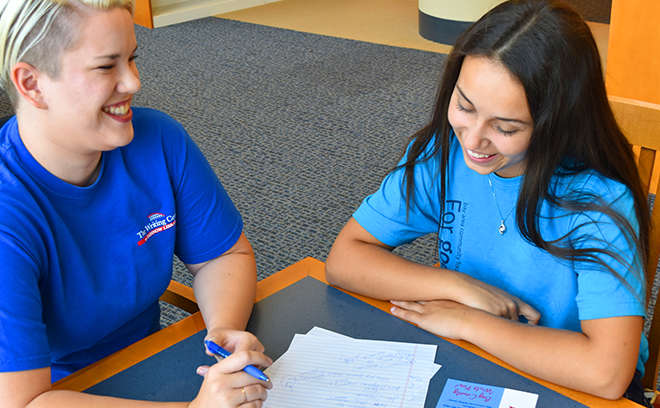Libraries serve as valuable hubs for education, and utilizing them for tutoring can enhance the learning experience. In this guide, we’ll explore best practices for effective tutoring in a library setting, ensuring a conducive environment for both tutors and learners.

Choose a Quiet Corner
When setting up a tutoring session, opt for a quiet corner or designated study area within the library. This minimizes distractions and fosters a focused learning atmosphere.
Utilize Library Resources
Leverage the wealth of resources available in the library. Encourage students to explore relevant books, research materials, and online databases that complement their learning objectives.
Adapt to Various Learning Styles
Recognize that each student has a unique learning style. Be adaptable in your tutoring approach, incorporating visual aids, hands-on activities, or collaborative exercises to cater to diverse learning preferences.
Schedule Regular Sessions
Establish a consistent schedule for tutoring sessions to provide structure and routine. Regular sessions help build a rapport between the tutor and student, fostering a positive and productive learning environment.
Encourage Group Study
Libraries often facilitate group study spaces. Encourage students to form study groups, promoting collaborative learning. This approach allows for peer interaction and shared understanding of challenging concepts.
Incorporate Technology Wisely
Integrate technology into your tutoring sessions judiciously. Utilize educational apps, online resources, and digital tools available in the library to enhance the learning experience without overwhelming students.
Respect Library Policies
Familiarize yourself and your students with the library’s policies. Respect rules regarding noise levels, space usage, and borrowing materials. Compliance ensures a harmonious learning environment within the library.
Provide Positive Reinforcement
Offer positive reinforcement to motivate and boost students’ confidence. Recognize their achievements and progress, creating a supportive atmosphere that encourages a love for learning.
Offer Guidance on Research Skills
Libraries are treasure troves of information. Equip students with effective research skills, guiding them on how to navigate catalogues, locate relevant materials, and critically evaluate information.
Seek Collaboration with Librarians
Collaborate with library staff and librarians to enhance the tutoring experience. Librarians can provide additional resources, suggest effective teaching strategies, and contribute to a holistic learning support system.
Promote Time Management Skills
Guide students in effective time management. Help them create study schedules, set realistic goals, and prioritize tasks. These skills are crucial for academic success and long-term learning.
Utilize Quiet Study Spaces
Libraries often have dedicated quiet study spaces. Recommend these areas for students who require a serene environment for focused learning, especially when dealing with complex subjects or during exam preparation.
Encourage Interactive Learning Tools
Explore interactive learning tools available in the library, such as educational board games, interactive whiteboards, or multimedia resources. These tools can make the learning process engaging and enjoyable.
Foster a Sense of Community
Create a sense of community among students who use the library for tutoring. Facilitate discussions, group activities, or even collaborative projects that promote camaraderie and shared learning experiences.
Offer Study Skill Workshops
Work in tandem with library staff to organize study skill workshops. Cover topics like note-taking techniques, effective reading strategies, and exam preparation. These workshops can benefit a broader audience and complement individual tutoring sessions.
Provide Additional Learning Materials
Supplement tutoring sessions with additional learning materials. Recommend relevant books, articles, or online courses that align with the student’s academic goals. A diverse range of resources enhances the learning journey.
In conclusion, tutoring in a library setting involves more than just helping with homework. It’s about creating an enriching learning environment that taps into the vast resources and opportunities libraries offer. By following these best practices, tutors can elevate the impact of their sessions and contribute to a culture of learning within the library.




